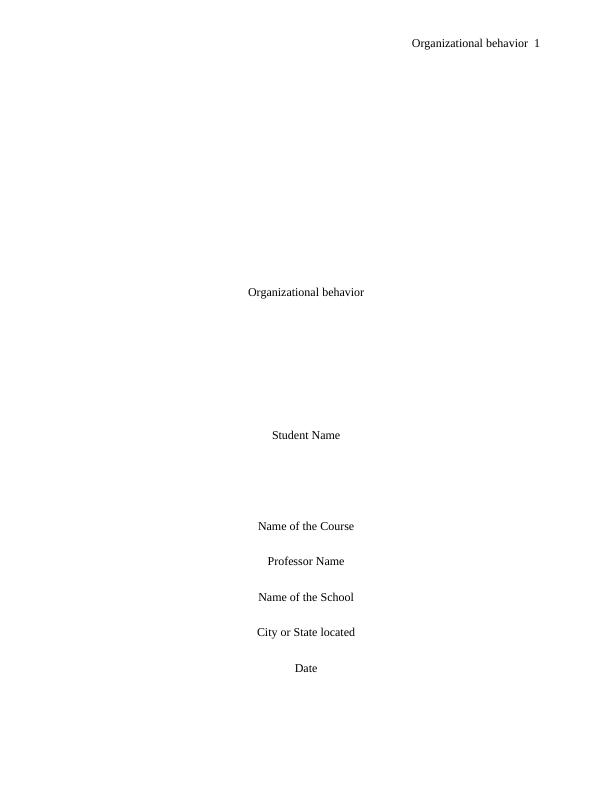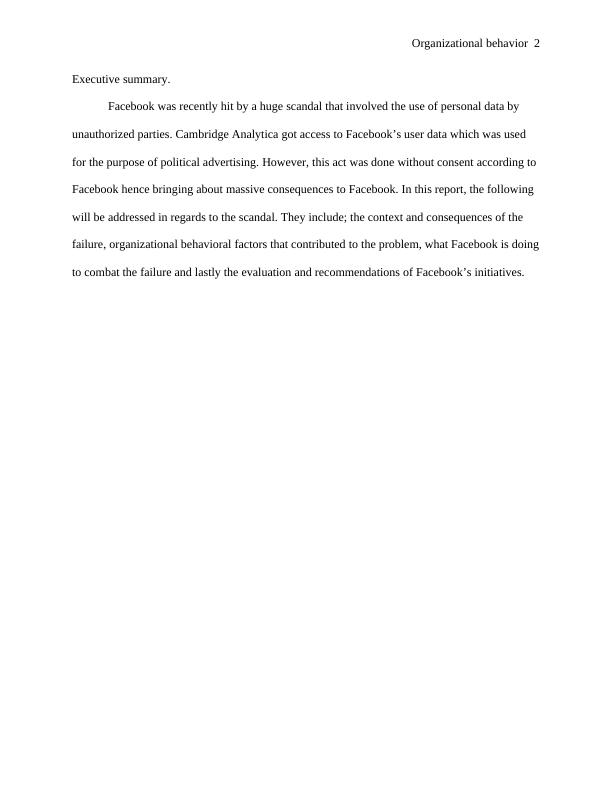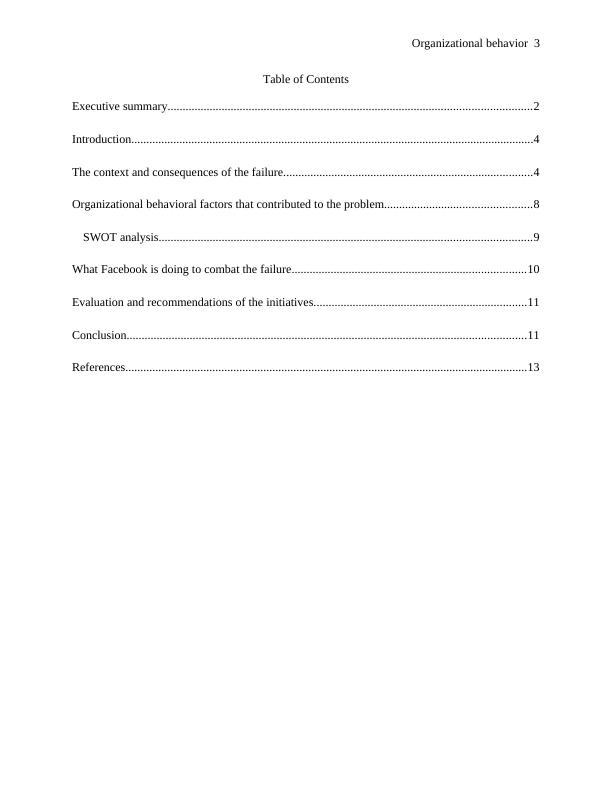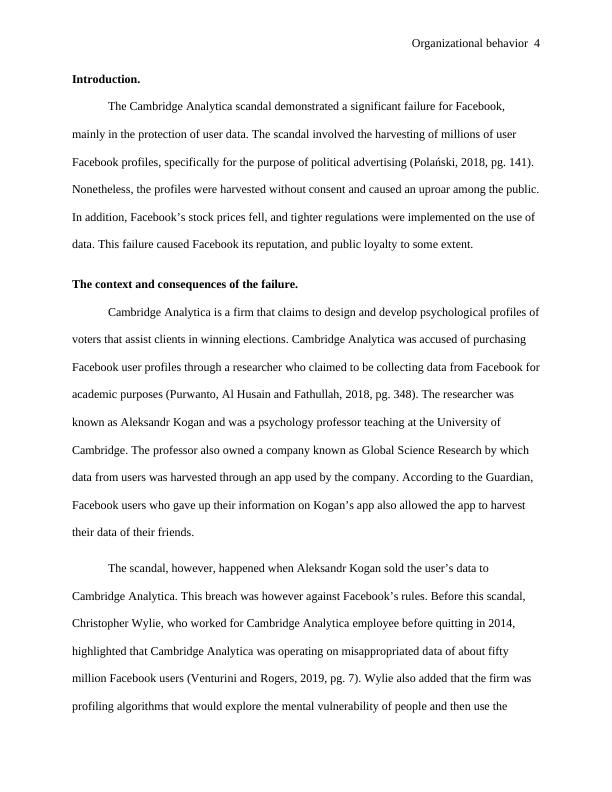Cambridge Analytica Scandal: Consequences and Facebook's Response
Apply and integrate OB theories to analyze how OB factors contribute to real-life organisational success or failure.
15 Pages3539 Words40 Views
Added on 2023-03-23
About This Document
This report discusses the context and consequences of the Cambridge Analytica scandal on Facebook, highlighting the organizational behavioral factors that contributed to the problem. It also explores what Facebook is doing to combat the failure and provides evaluation and recommendations for the company's initiatives.
Cambridge Analytica Scandal: Consequences and Facebook's Response
Apply and integrate OB theories to analyze how OB factors contribute to real-life organisational success or failure.
Added on 2023-03-23
ShareRelated Documents
End of preview
Want to access all the pages? Upload your documents or become a member.
Cambridge Analytica Scandal
|12
|2575
|101
Cambridge Analytica Case Analysis
|10
|2868
|226
ICT Professional Practice and Ethics - Cambridge Analytica Case Analysis
|14
|3406
|84
Facebook–Cambridge Analytica Data Scandal
|8
|589
|88
Data Breaches and Scandals - Assignment
|11
|2250
|46
Facebook and Cambridge Analytica: A case of Data Breach
|12
|964
|156




